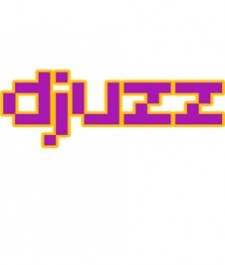With game and app distribution one of the hot topics of 2010 so far, BuzzCity's free game portal Djuzz is proving to be a hit.
Launched in February, publishers such as HeroCraft, Indiagames, InLogic and Hovr are already using the service.
We caught up with BuzzCity's CEO KF Lai to find out more.
Pocket Gamer: Can you explain about BuzzCity and Djuzz?
KF Lai: We're a mobile advertising network, working with about 2,000 publishers and a couple of a hundred advertisers who place ads into the network. Djuzz is one of our properties we've introduced into this network.
Usually we work with thirdparty publishers but in order to provide better choice to our advertisers, we want to give them premium properties they can use for custom campaigns and to have more engagement with the audience. We already have a mobile community called myGamma, so Djuzz is the second mobile property we have introduced into the mix.
What's the set up with Djuzz?
We launched it at Mobile World Congress 2010 in February and so far we have about 30 game developers supplying us with close to 2,000 games.
And the traffic's already going well. We're doing around 100,000 page views per day and this generates 30,000 downloads daily. We'll get to around a million downloads a month by next month. We're happy with that.
How do developers supply you with games?
Primarily they're supplying us with Java games although we can take other formats. The games are supplied royalty free and they are downloaded from Djuzz for free. Developers view us as a distribution platform, so they upsell by using trials, try-and-buy games, cross promotion or virtual items.
How does the approvals process work?
We do in-house testing and quality assurance because there's a stigma that free games are junk. We want to do away with this and make sure we only provide quality content. We do not accept all games.
Do you provide any other technical options?
We can offer our virtual currency from myGamma, which is called Gamma dollars, if developers don't have billing relationships in certain territories.
In what countries is Djuzz popular?
For the first month, India, Malaysia and South Africa have been big markets. More surprising has been Vietnam, which is now in the top five. We're watching it closely.
How do you promote Djuzz?
We use myGamma as a way to distribute Djuzz because it's linked to myGamma in terms of the editorial content. For example, we have a shared link from Djuzz whereby users can find interesting games and click on the link to be able to share it with their friends in myGamma.
Similarly our initial traffic is influenced by myGamma's. We also use our own ad network to publicise Djuzz. We understand certain territories are more lucrative for our advertisers, and for our developers, so we are adjusting our marketing dollars accordingly.
What does Djuzz offer that's different to myGamma?
We want to offer our advertisers various properties so they can do different things. That's particularly the case with vertical properties such as games and Djuzz because they have a specific audience that advertisers can do a lot more with. For example, they can sponsor games.
In addition, some developers have come to us and asked if they can put advertising in their games. That's something we're now working on in terms of providing a SDK.
Asides from hitting the million downloads per month, what's next for Djuzz?
Over the next couple of months, we're going to launch the Djuzz catalog. This is a white label property that we'll able to bring to media companies, carriers and handset manufacturers and co-brand the games with them.
Thanks to KF Lai for his time.
You can check out myGamma here and Djuzz here.
BuzzCity's Lai on the early success of free games portal Djuzz
Already doing 30k downloads daily





















